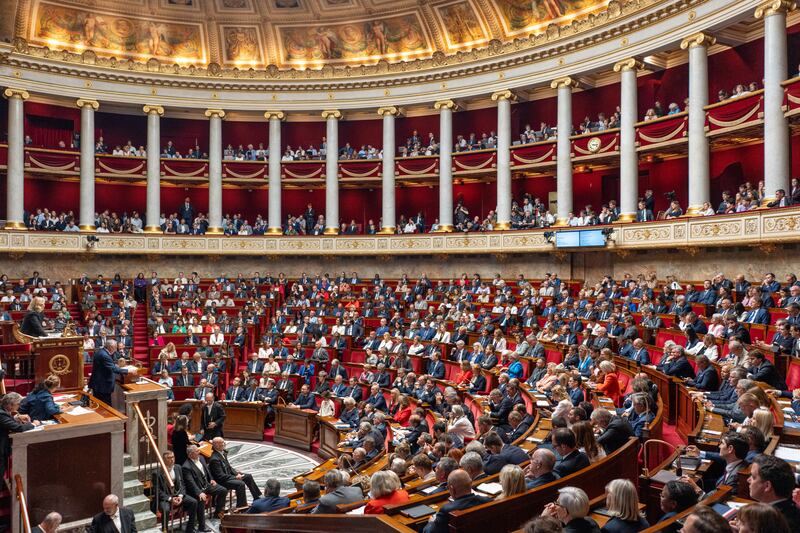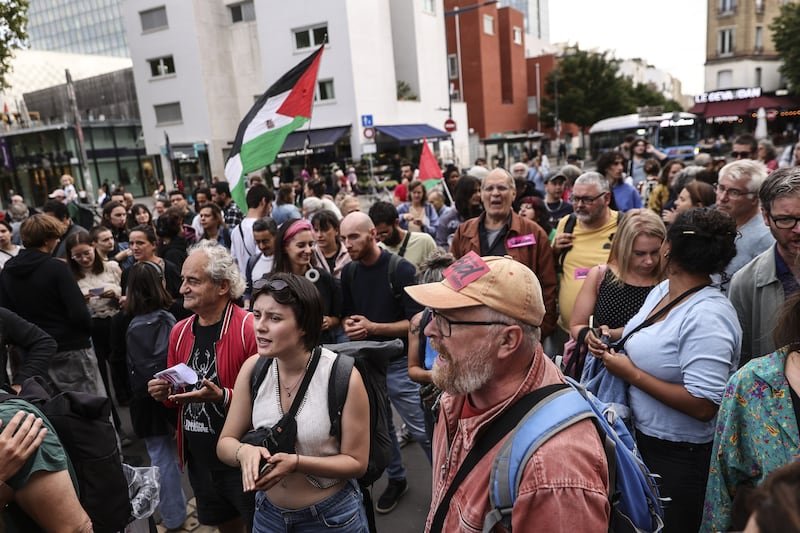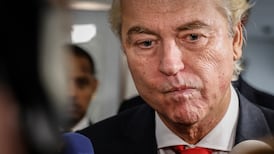A good long lunch is still sacred in Paris. Governments are formed and governments collapse, but it would take a political crisis of possibly apocalyptic proportions to disrupt that midday tradition.
It has been a sunny start to this week, so the tables out in front of restaurants and cafes are full.
Others who have queued to grab takeaway salads or sandwiches find spots in nearby parks, or benches, to sit and eat.
“Honestly I think it’s a shame that politics and the National Assembly can’t figure out together what’s best for the country,” says one local on their lunch break. “I just feel like they’re just thinking for their own best interest,” says the 29-year-old engineer, who doesn’t want to be named.
READ MORE
French prime minister François Bayrou’s minority government has collapsed after barely nine months in office. The 74-year-old centrist premier was brought down after losing a confidence vote he tabled in parliament on Monday evening.
President Emmanuel Macron has had to quickly weigh up who to pick as his fifth head of government in two years, a rapid turnover that illustrates the governing crisis at the top of French politics.
In a statement on Tuesday evening, the Élysée Palace said Macron had appointed Sébastien Lecornu as the new prime minister. Lecornu, minister for the armed forces in the outgoing government, had been heavily linked with the job.
Many commentators say the prospects of anyone faring better than recent predecessors is slim.
Bayrou’s surprise confidence vote was a throw of the dice, aimed at bouncing some of the opposition into supporting a controversial cost-cutting budget.
[ A second French government has effectively collapsed. What is going on?Opens in new window ]

The unpopular plan for €44 billion in cuts and savings was necessary to tame France’s worryingly high budget deficit and growing public debts, Bayrou had said.
In the end not even all the members of his own government voted with him. He had the support of Macron’s Renaissance party and its other centrist allies, but barely half of the deputies from the smaller centre-right Republicans party voted in favour of his motion.
Marine Le Pen’s far right National Rally and all the opposition parties of the left voted to topple Bayrou’s administration, meaning France is without a government for the second time in 10 months.
The problem is Macron “doesn’t listen to the people”, says Eduardo Paumelle, a 68-year-old Parisian working in the hotel business.
“He doesn’t care about what we think, he just has his own view, he doesn’t care about anything else. And the French people, they want to get rid of him as soon as possible,” Paumelle says.
Macron’s second term runs until the spring of 2027, at which point fresh presidential elections will be held. Le Pen is hoping that poll will prove to be the breakthrough where the far right march into the highest office in French politics.

After serving two consecutive terms, Macron cannot put himself forward again. Possible contenders are all jostling for position inside the various political factions, plotting a run in a year and a half’s time.
“I don’t see anybody for the moment who can really take the place in the right direction,” Paumelle says.
The 68-year-old is sitting on a chair in the Tuileries Garden, near the Louvre, reading L’Assommoir, a classic by the 19th century French novelist Émile Zola, about working class life in Paris.
Maybe the solution was not to have any politicians in charge, Paumelle says. “In Belgium they had no government for one or two years,” he says.
The immediate concern for Macron will be whether his new prime minister can squeeze a budget through the fractious National Assembly this year.
Snap elections last summer returned a hung parliament, where seats were split between the far right National Rally, Macron’s diminished centrist bloc and several left-wing parties.
“Whatever will happen we will have a very complex situation,” says Andre Gattolin, a former senator from Macron’s party.

Olivier Faure, leader of the centre-left Socialists, had said the next prime minister should come from their ranks, tipping himself for the role. Such a government would be well short of a parliamentary majority, with the support of the centre parties and the Greens.
Jean-Luc Mélenchon, the leader of the radical France Unbowed, the largest party on the left, said they would not support any coalition that includes Macron’s people.
In the end Macron returned to the ranks of his own centre coalition, where Bayrou was drawn from. Lecornu comes from Macron’s party, but was a former member of the Republicans.
Gattolin says fresh parliamentary elections will be needed in the near future, even if the result is that Le Pen’s party emerges as the largest force.
Such a scenario might force the National Rally to govern and take tough decisions, possibly killing their momentum heading into the 2027 presidential election, he says.
The former senator says first an interim prime minister will have to get a scaled-back budget through parliament.
Protests planned for Wednesday could further shake public confidence in the system.
A new “block everything” movement has threatened a wave of disruption across the country that activists say will bring France to a halt, similar to the yellow vest protests of 2018.
The protests have been organised online by a leaderless structure, which makes it difficult for authorities to gauge what sort of turnout to expect.

Paris police chief Laurent Nunez said 80,000 police would be deployed across the country, with authorities fearing attempts to block some main roads and train stations. “Many arrests may be made,” he said.
Macron will certainly be hoping he does not have to add quelling mass unrest to the list of mounting problems France needs to solve.













